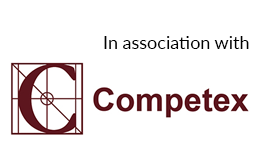How to get a mortgage when self-employed – a quick-start guide
Words by Josh Hall
All too often, self-employed people presume that they won’t be able to get a mortgage. But, while lenders have tightened their criteria in recent years, it’s definitely still possible.
Prior to the onset of the financial crisis, lenders offered the self-employed so-called ‘self cert’ mortgages. Under these, borrowers could often apply for a loan without providing proof of income. Instead, they simply stated what they earned, and the lender made a decision based on potential affordability.
- Self-employed pensions: what you should know
- Could Barclays lend you £25,000 in 60 minutes?
- Self-employed tax deductible expenses: what can I claim?
- What type of business insurance do I need?
However, these loans inevitably had a higher default rate, and after 2008 they were scrapped. Today, if you want to get a mortgage when you’re self-employed, you need to jump through some more hoops.
What you need to get a mortgage when self-employed
To get a mortgage while self-employed, it’s crucially important that you have a strong credit history. Major bad credit events such as CCJs or bankruptcies will make it extremely difficult to secure a loan, and if you do, the interest rates are likely to be high. However, provided that your credit history is good, there are still many deals on offer even if you work for yourself.
So what do you need to submit? Lenders will generally require you to provide at least three years worth of accounts, and many will look for evidence that your business has grown during that period. It should at least have remained stable. Most lenders will ask that these accounts are made up by a certified or chartered accountant, although some may be happy just looking at your tax returns.
You’ll also need to show that you have a regular income: lenders will be more suspicious if your accounts have big peaks and troughs. You are likely to also be asked for at least three months of bank statements for both your personal and your business account. For your personal account, try to limit your spending for a period before your application. Big red flags for lenders will include outgoings for things like gambling, but you should also expect to be questioned on other discretionary spending like regular dining out, large purchases, or potentially even things like your Netflix subscription.
Self-employed mortgage applicants may also be expected to provide a larger deposit, and this must generally come from your own savings. If a family member is helping with the deposit, you will probably be asked to provide proof that this is not a loan.
What if I run a limited company?
If your business is a limited company or partnership, the rules are slightly different. If you are the director of a limited company, most lenders will ask you for proof of personal income from your business. Many directors pay themselves in dividends for tax purposes; if you do so, you should make sure that the lender takes these into account along with any salary that you draw.
If you are in a partnership, remember that lenders will only take into account your portion of the income derived from the business, and not that of your partner.
What are the challenges in getting a mortgage when self-employed?
There are a number of challenges that self-employed people may face when trying to secure a mortgage.
- Your accounts may not be up to date enough, or may not have been made up by a certified or chartered accountant. Make sure that you have all the paperwork ready and in order before you begin.
- You may have existing personal debts. Try to pay these off before you apply.
- You may have minimised your earnings for tax purposes. While this may mean that you have to pay less to HMRC in the short term, it can significantly limit your borrowing power.
Do I need a broker to get a self-employed mortgage?
Especially for the self-employed, a broker can be invaluable when looking for a mortgage. In fact, some of the best deals on offer for self-employed people are only available through brokers, including a widely reported product from Kent Reliance. In March 2016, this lender relaxed its lending criteria for the self-employed, allowing potential borrowers to submit just one year’s proof of income rather than the normal three.
Finally, remember that while it can seem daunting to get a mortgage when you’re self-employed, it’s not impossible. Although lenders have become stricter, bear in mind that they do still want to lend. As long as you can prove you’re financially stable and, ideally, that your business is growing, you should be on the right track.





